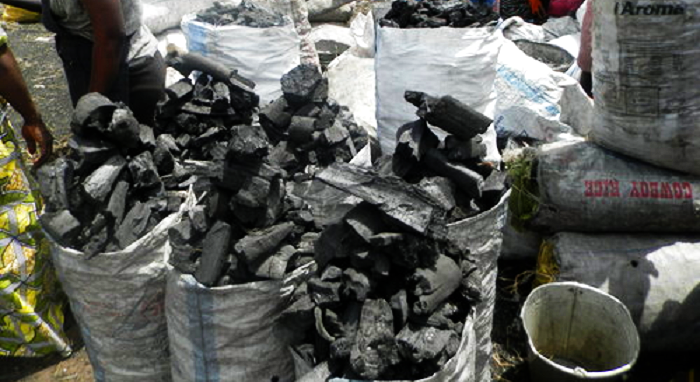
Charcoal: The Unsung Resource
Christian laid on the floor rolling from one end of the wall to the other apparently suffering from stomach pains.
Advertisement
It was late in the evening and the nearest hospital was some tens of kilometres away. Both old and young looked on helpless as anxiety and fear engulfed us all. Auntie Aba, an octogenarian in the neighbourhood, came around and offered an advice – a lump of charcoal should be washed thoroughly and given to Christian to chew and swallow. Quite a ridiculous advice but the parents heeded to it. To our surprise, about half an hour later, Christian was well again, back on his feet. This was some 22 years ago and I can still vividly recall my first amazement of the wonders performed by charcoal. This has since led me to take keen interest in charcoal as a resource.
Charcoal, a porous black solid material obtained when wood or other organic matter is heated in the absence of air, is a common resource used as fuel in most Ghanaian homes. There are, however, other far-reaching economic beneficial uses of charcoal other than just fuel.
As medicine
A form of charcoal, activated charcoal (carbon) is touted for its medicinal properties. It is administered orally (as slurry) as the antidote to some kinds of poisoning and alleviating stomach pains as a result of excess gas. The toxins are adsorbed on the porous carbon surface and are flushed out. This may probably be the reason behind the magic of charcoal in Christian’s case as mentioned earlier.
Oral hygiene
Charcoal may also be used to promote good oral health. It helps in whitening the teeth by adsorbing plaque and microscopic food matter which have the tendency to stain the teeth. This property of charcoal was probably known by our forefathers and for that reason, charcoal was grounded into powder and used periodically in cleaning the teeth. Those were the days where toothpaste and brush were luxuries and not necessities.
Industrial use
The use of charcoal is not limited to health. It has some fascinating industrial applications as well. In the mining industry, activated carbon is used extensively in precious metal recovery. A typical example is the Carbon in Leach (CIL) and Carbon in Pulp (CIP) processes in which granular activated charcoal is used in adsorbing gold cyanide complex from the gold ore slurry before stripping the gold from the carbon surface.
The water industry also makes substantial use of the commodity. Activated charcoal is used in removing odour and colouring matter from water in water treatment plants for their safe consumption. It is an integral part of the filtration system adopted in most sachet water industries, a booming business in the country in recent years.
In agriculture
Biochar, another form of charcoal, has varied uses. The agriculturist lauds it for its ability to enhance soil fertility by retaining vital soil nutrients such as nitrogen and soil water for flora growth. To the environmentalist, it is one of the promising ways of tackling climate change by dint of its ability to sequester carbon and thereby minimise the release of carbon compounds that compound global warming.
To prevent electrical shocks in buildings and protect equipment from high voltage effects during lightning and line surges, buildings are earthed. Charcoal is an important component of the earth pit material because it absorbs water, keeping the soil moist and enhances conductivity.
The resource charcoal plays yet another important role in chemical warfare. Activated charcoal is used as adsorbent in gas mask to protect people from inhaling lethal toxic gases. Due to the large surface area of the porous carbon surfaces, it is able to adsorb toxic gases released.
Occupational health and safety professionals recommend the use of respirators for nose protection for workers in toxic fumes and other gaseous environments when engineering controls and administrative controls are not feasible. The reason – the cartridges in the respirators are filled with the adsorbent, activated carbon which has the tendency to adsorb toxic gases.
Granted, charcoal may not be as priced as gold or diamond and in some instances becomes a nuisance when it stains a dress but as a resource, it will continue to pay its dues for ages to come.



